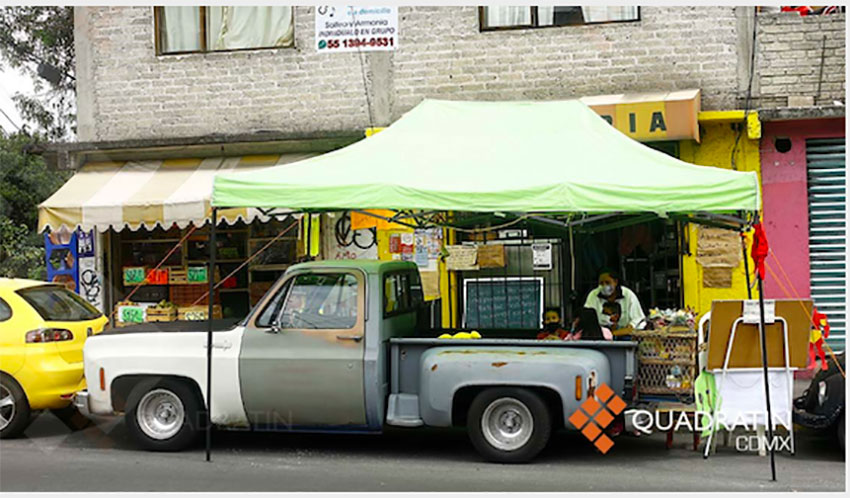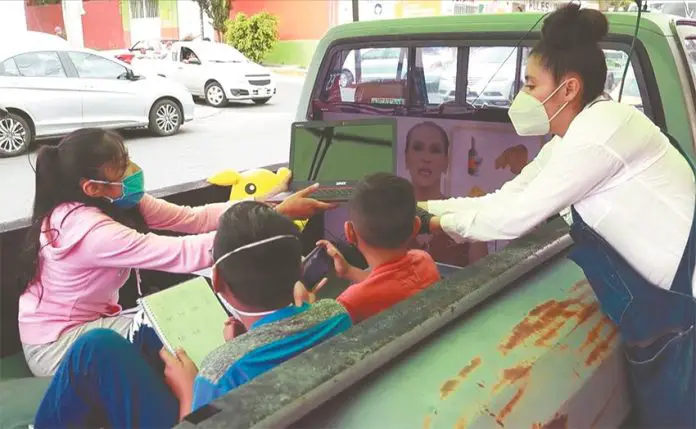A Mexico City tortilla maker began providing food for the hungry a few months ago. Now they have turned to helping children who don’t have access to the technology they need to go back to school.
Tortillería owner Dalia Ávila has converted the bed of a pickup truck bed into a virtual classroom for disadvantaged children.
Furnished with a desk, television, laptop, smartphones and notebooks, the truck provides an improvised classroom for children in the Mexico City borough of Tlalpan.
Ávila calls it the “Rinconcito de Esperanza,” or Little Corner of Hope, and dedicates the project to the memory of her infant son Leo who died in February.
Ávila says she was inspired by the charity of strangers while tending to her ailing son in the hospital, and after his death she vowed to pay it forward in his name.

“They infected us with love, hope and empathy, and all that they gave us we are replicating here,” she says.
Her Tortillería La Abuela has been providing daily meals to the hungry, free tortillas to the elderly, and groceries to the needy.
Opening a study area for children of working mothers was a natural transition that began as a way to help her own employees make sure their children had access to education through the coronavirus-triggered distance learning program.
“Many children do not have internet, a laptop or television to be able to watch the classes. I saw the suffering and stress of the mothers who had to decide between work and their children’s education,” she says.
The initiative started with five children but has grown substantially. Groups of children now climb into the study truck on an appointment basis. When school supplies such as notebooks run out, Ávila improvises by handing children the paper she wraps tortillas in so they can continue their homework.
Masks and hand sanitizer are provided, and only children who live together can be in the truck at the same time. The truck bed is disinfected daily.
According to the Ministry of Communication and Transportation, 35% of the country’s population over six years old does not have internet access.
After just a week of operation, 50 children have signed up to attend virtual classes in the back of Ávila’s pickup.
Source: El Universal (sp)
